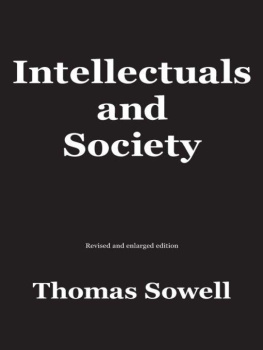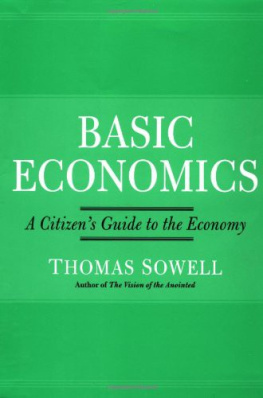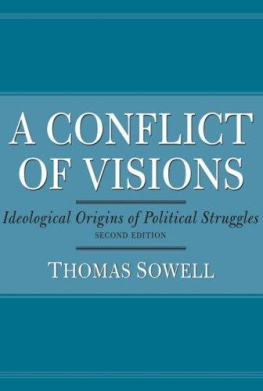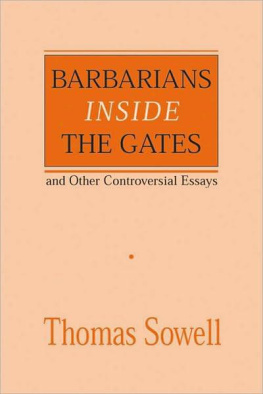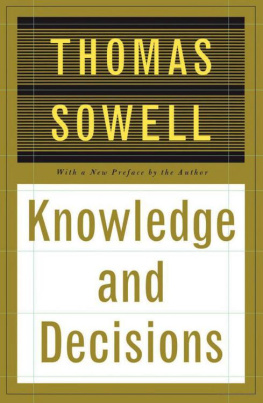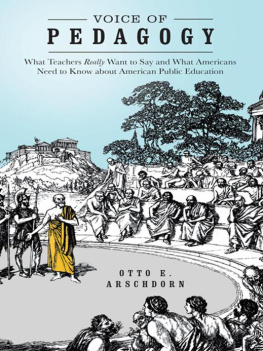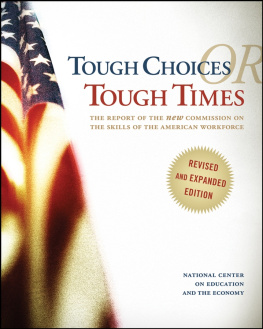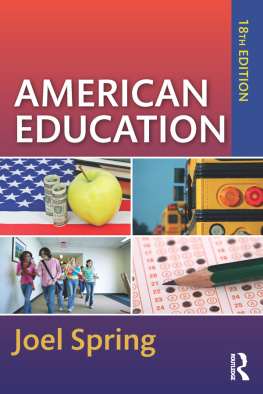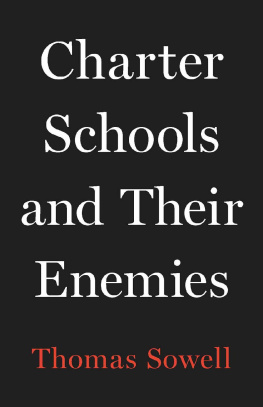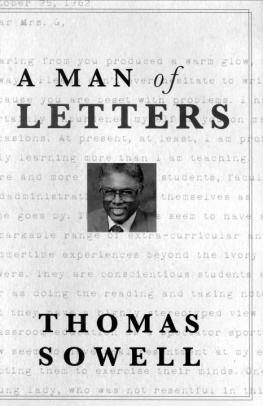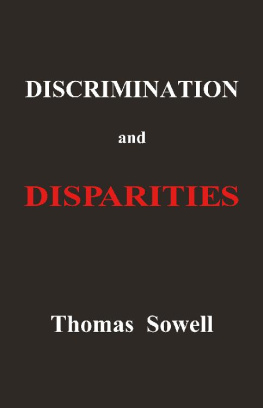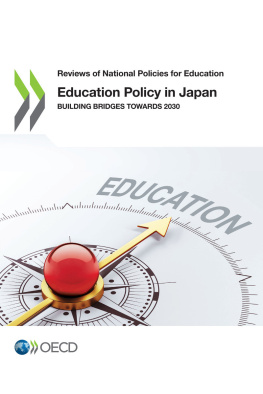INSIDE
AMERICAN
EDUCATION

The Decline, the Deception,
the Dogmas
THOMAS SOWELL

THE FREE PRESS
NEW YORK LONDON TORONTO SYDNEY TOKYO SINGAPORE
Copyright 1993 by Thomas Sowell
All rights reserved. No part of this book may be reproduced or transmitted in any
form or by any means, electronic or mechanical, including photocopying, recording,
or by any information storage and retrieval system, without permission in writing
from the Publisher.
The Free Press
A Division of Simon & Schuster Inc.
1230 Avenue of the Americas
New York, New York 10020
www.SimonandSchuster.com
Printed in the United States of America
printing number
6 7 8 9 10
Library of Congress Cataloging-in-Publication Data
Sowell, Thomas
Inside American education: the decline, the deception, the dogmas/
Thomas Sowell.
p. cm.
Includes bibliographical references.
ISBN 0-02-930330-3
eISBN-13: 978-1-4391-0762-1
1. EducationUnited StatesAims and objectives.
2. EducationUnited StatesEvaluation.
I. Title.
LA210.S65 1993 92-19198
370.973dc20 CIP
The author is deeply grateful for permission to quote extensively from copyrighted material published in The Public Interest and in these sources:
Los Angeles Magazine. Reprinted with permission from Los Angeles Magazine. Copyright
Los Angeles Magazine. All rights reserved.
The University of Toledo Law Review, Volume 1970. Reprinted by permission of The University of Toledo Law Review, Volume 1970.
To
NA LIU
whose dedicated work helped make this book possible
For the first time in the history of our country, the educational skills of one generation will not surpass, will not equal, will not even approach, those of their parents.
JOHN COPPERMAN
CONTENTS
PREFACE
LIKE MANY other people, I have long been appalled by the low quality and continuing deterioration of American education. However, after doing the research for this book, I am frankly surprised that the results are not even worse than they are. The incredibly counterproductive fads, fashions, and dogmas of American educationfrom the kindergarten to the collegeshave yet to take their full toll, in part because all the standards of earlier times have not yet been completely eroded away. But the inevitable retirement of an older generation of teachers and professors must leave the new trends (and their accompanying Newspeak) as the dominant influence on the shaping of education in the generations to come.
Much has been said about how our young people do not meet the academic standards of their peers in other countries with which we compete economically. While this is both true and important, their academic deficiencies are only half the story. All across this country, the school curriculum has been invaded by psychological-conditioning programs which not only take up time sorely needed for intellectual development, but also promote an emotionalized and anti-intellectual way of responding to the challenges facing every individual and every society. Worst of all, the psychotherapeutic curriculum systematically undermines the parent-child relationship and the shared values which make a society possible.
Parents who send their children to school with instructions to respect and obey their teachers may be surprised to discover how often these children are sent back home conditioned to disrespect and disobey their parents. While psychological-conditioning programs may not succeed in producing the atomistic society, or the self-sufficient and morally isolated individual which seems to be their ideal, they may nevertheless confuse children who receive very different moral and social messages from school and home. In short, too many American schools are turning out students who are not only intellectually incompetent but also morally confused, emotionally alienated, and socially maladjusted.
At the college and university level, the intrusion of nonintellectual and anti-intellectual material into the curriculum takes more of an ideological, rather than a psychological, form. New courses, new departments, and whole new programs concentrate on leading students to preconceived ideological conclusions, rather than developing the students ability to analyze issues so as to reach independent conclusions. The particular subject matter of these ideological courses and programs may range from race to the environment or foreign policy, but the general approach is the same, not only in its fundamental anti-intellectualism, but also in its underlying hostility to American society and Western civilization, and the tendentiousness or even dishonesty with which it attempts to indoctrinate. Here again, the danger is not that these methods will succeed in achieving their goals, but that they will undermine or cripple education in the attempt.
Thomas Sowell
Hoover Institution
CHAPTER 1
Decline, Deception, and Dogmas
VIRTUALLY EVERYONE has heard how poorly American students perform, whether compared to foreign students or to American students of a generation ago. What everyone may not know are the specifics of how bad the situation has become, how and why the public has been deceived, or the dogmas and hidden agendas behind it all.
The general decline in educational performance that began in the 1960s encompassed elementary and secondary education, as well as education at the college level. The evidences of this decline include not only results on a variety of objective tests, but also first-hand observations by teachers and professors, and dismaying experiences by employers who have found the end-product seriously lacking. The most widely known decline was in the scores on the Scholastic Aptitude Test (SAT). However, scores also declined on the rival American College Testing Program (ACT) examination, as well as on the Iowa Test of Educational Development,
Significantly, this era of declining academic performance has also been a period of rising grades. American high schools gave out approximately twice as many Cs as As in 1966, but by 1978 the As actually exceeded the Cs.
Similar grade inflation has become common at the college level. Between 1958 and 1988, the average grade at Dartmouth rose from C to B. More specifically, the Dartmouth student bodys grade-point average rose from 2.2 in 1958 to 3.2 in 1988.
Among the factors behind nationwide rises in college grades, in addition to more lenient grading by professors, have been such widespread practices as not recording failing grades on the students records, allowing students to withdraw from class when a failing grade is impending, and ordinary cheating. Between 1966 and 1988, the proportion of students cheating increased by 78 percent, according to a national survey.
These two trendsgrade inflation and declining test scoresare by no means unconnected. Without the systematic deception of parents and the public by rising grades, it is highly unlikely that the decline in performance could have continued so long. The deeper question isWhy? Whose purposes are being served, and whose agendas are being advanced, as American education declines?
PERFORMANCE AND DECEPTION
Perhaps nothing so captures what is wrong with American schools as the results of an international study of 13-year-olds which found that Koreans ranked first in mathematics and Americans last. When asked if they thought they were good at mathematics, only 23 percent of the Korean youngsters said yescompared to 68 percent of American 13-year-olds.


